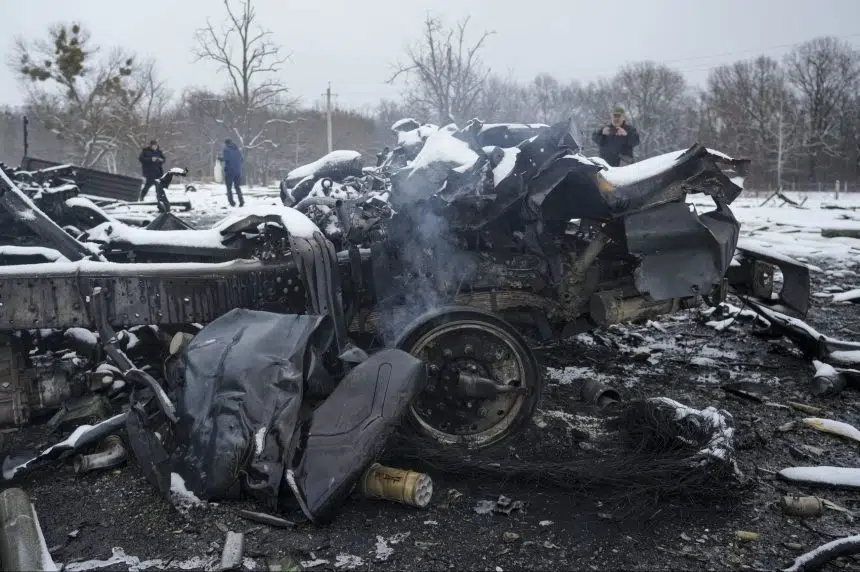Saskatoon’s Petro Skirchuk hasn’t had a lot of sleep over the last couple of days.
His phone regularly beeps and chirps with messages not just from journalists wanting to speak with him, but with messages from close friends and family in Ukraine.
His home country was attacked by Russian military forces Wednesday night.
Skirchuk, his wife Iryna and their daughter have only been in Canada for 10 months; they left Ukraine, where he worked for the United Nations, for a more stable and peaceful life in Canada.
Over the past month, he has become increasingly concerned as the Russian military moved toward his home country. Missile strikes and bombing raids preceded Wednesday’s invasion by ground forces.
“Things are going to become faster and faster, so I’m afraid for my relatives (and) for my friends,” Skirchuk said.
Asked if any of them need help right now, he said he could send money to them from Canada, or connect friends with relatives.
“They’re all prepared,” Skirchuk said. “It’s something we’ve been living with for many years.”
Since 2014, when Russia annexed the Crimean Peninsula, Skirchuk said the possibility of Russian President Vladimir Putin invading Ukraine has always been in the back of many people’s minds.
“Eight years ago when Putin began to occupy some Ukrainian territories like Crimea and the east of Ukraine, that was just a first step,” Skirchuk said. “He didn’t receive any big response from Ukraine because Ukraine at that time was a really weak country. The revolution just happened and there was no army that was able to stop Putin (or) able to stop Russia.”
Weeks ago, Skirchuk believed Putin would move further into the country when it and other European Union countries were at a vulnerable point. Looking back, he said that’s what has occurred. Winter isn’t over yet, and many countries are running low on their oil and gas reserves.
“Strategically, February is the month where (countries in) Europe, they need Russia’s gas. So right now I am sure we will not see any real, strict sanctions from the European countries. They need Russians for at least another two months,” Skirchuk said.
At this point, he said his family has decided to stay in Ukraine. Many live closer to the Polish border and have told him they won’t leave their homes even if soldiers come to their doorstep.
“If this happens, and it will happen, a lot of civilians will start to do what they can to stop Russians,” Skirchuk said.
As Skirchuk glanced back and forth from his telephone, he said Canadians are fortunate.
“You as Canadians are lucky,” he said. “You are lucky to live in a safe country, a country where values like democracy, equity and freedom are not just words.”








